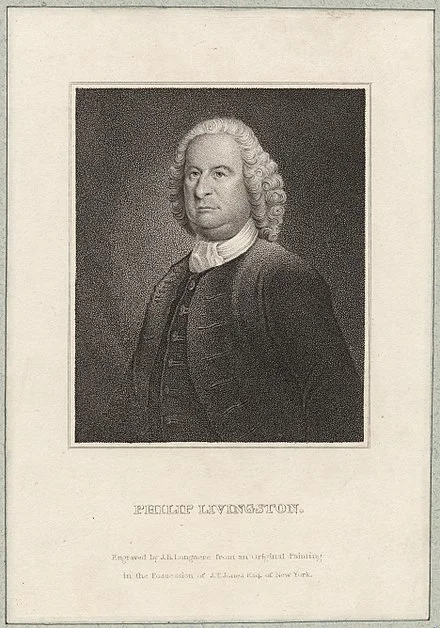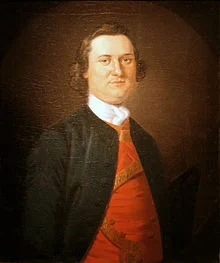Philip Livingston Attends The Albany Congress
Well, it happened again.
I was writing an article about a signer of the Declaration of Independence and it ended up being REAL long.
So, I’ve decide to do what I think it best for you, the reader, and split it up into two parts.
Which means…Welcome to Philip Livingston Weekend!
In this article, we’ll focus on Livingston’s early life and the much under-appreciated Albany Congress of 1754.
Philip Livingston
The British colonies were at war.
As usual, they were fighting with their French neighbors to the north.
King Philip’s War (the North American theater of the War of Austrian Succession) was fought mostly in Nova Scotia, New York, New Hampshire and Massachusetts.
Philip Livingston, a young merchant who came from one of New York’s wealthiest families, was a major supplier of the British troops. Additionally, he outfitted several privateer ships to attack the French at sea.
Though the outcome of this early World War had very little effect on the North American colonies, it had a massive effect on Philip Livingston: it made him very, very rich.
Philanthropy
Philip Livingston was a very public-minded man and used his wealth to improve New York City.
Livingston founded and was an early president of the St. Andrew’s Society which was one of the first philanthropic institutions in New York. He also assisted in the creation of the New York Public Library as well as acting as an early governor of New York Hospital.
Oh, and he somehow found the time to organize the New York Chamber of Commerce.
You say the city needed a college? Lucky for you Philip Livingston was a major champion of the creating of King’s College, now known as Columbia (much to his brother William’s dismay).
The Albany Congress
Livingston first served the government before he was elected as a politician. He was chosen to attend the Albany Congress in 1754.
This meeting was held by members of several northern colonies to discuss their common defense at the onset of the French and Indian War. It played a much larger role in the future of North American than the delegates realized at the time.
This organization of several separate forces into one united army would make things easier when the Revolutionary War began twenty years later.
Additionally, the delegates proposed the idea of one united government for the British colonies which bares a striking resemblance to the United States Constitution which would be written three decades afterwards.
Furthermore, it is interesting to note the delegates in attendance. One was Thomas Hutchinson, who would later be one of the most important Loyalists to the British. At the same table were four future signers of the Declaration of Independence: Livingston, Benjamin Franklin, Oliver Wolcott, and Stephen Hopkins.
Although the Albany Congress was not viewed as revolutionary at the time, the discussions had at this juncture can be viewed in hindsight as the first indication that colonists wanted (and could conceivable handle) more control over their own affairs.
If you are interested in learning more about Founders who were leaders of the Revolution before they knew there was a Revolution, check out our articles on Richard Bland and John Lowell.
For more reading on the Albany Congress, check out ‘Indians and Colonists’ which is the only book I’ve found on the subject (if you know of any other, please let me know!). It can be purchased through our affiliate link below.
And if you are new here, make sure to subscribe to our email list to receive a new Founder every morning.





